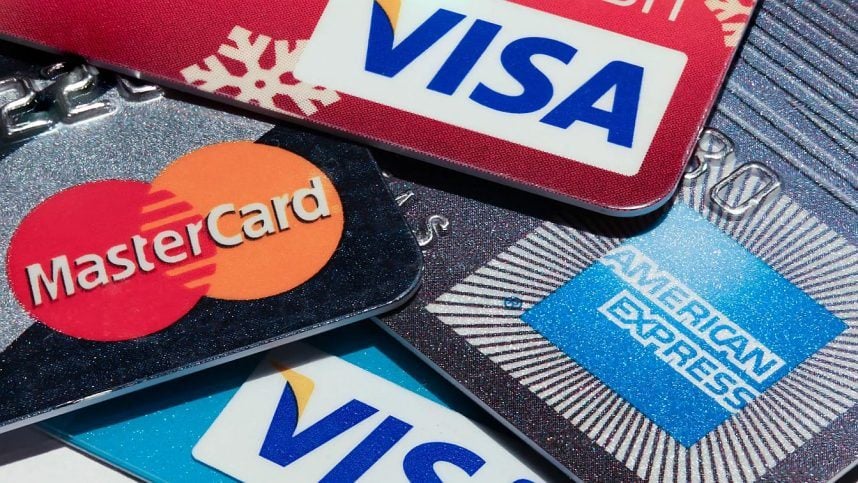Bettor Be Warned: Don’t Use Credit Cards to Fund Sports Betting Accounts
Posted on: December 17, 2024, 05:22h.
Last updated on: December 17, 2024, 05:22h.
With Missouri slated to enter the fray at some point next year and assuming no other states legalize and launch online sports betting in 2025, approximately 30 states and Washington, DC will offer true mobile wagering that doesn’t require a visit to a brick-and-mortar casino.

Nevada is “the offender” on that front, but the reality is anywhere from eight to nine of every 10 sports wagers in the US is placed via a computer or mobile device and bettors love the convenience. They should also be wary of funding their accounts with credit cards.
A new report by the Consumer Financial Protection Bureau (CFPB) indicates that sportsbook operators that allow mobile account deposits via credit cards, which pertains to most of the industry, treat those transactions as cash advances, not traditional charges. That means that bettors could be unknowingly subjected to higher fees than if they funded their accounts with cash in person or with debit cards linked to their checking accounts.
Plus, those cash advance fees are hard to avoid. The CFPB noted that of the seven largest credit card issuers in the US, all featured stipulations in their card member agreements pertaining to treatment of legal wagering services as cash advances.
Credit Card Fees Another Vig
It’s not new that credit card issuers are treating gaming charges as cash advances. That policy has been in place for years, but the CFPB is calling attention to it at time of surging growth in the US sports wagering market.
One way to look at the cash advance fees is that they act as another vig. In a standard -110 sports wager, the bettor is risking $110 to potentially win $100 with the $10 difference being the vig or nothing more than a convenience charge levied by gaming companies. Throw in the cash advance costs and betting becomes more expensive.
Cash advance fees often have a minimum charge of $10, making smaller cash advances particularly costly,” according to the CFPB. “This means that someone wagering $20 could face the same $10 fee as on a $200 cash advance ATM withdrawal. The most common cash advance APR in reviewed agreements is 30 percent which is charged even if the cardholder would typically not incur interest on regular purchases.”
Something else to consider: cash advances and the ensuing fees do not count toward cash back, miles, points, or other forms of rewards offered by card issuers.
Sports Betting Prompting More Cash Advances
Despite the aforementioned issues, it appears as though many sports bettors are funding their mobile accounts via credit cards.
The CFPB analyzed data from two states — Iowa and Kansas — noting that after sports wagering was legalized in those jurisdictions, a surge in cash advance activity followed.
“Through the CFPB’s limited analysis of two case studies where the timing of legalizing sports betting lined up with the frequency of our data from major issuers, the percentage of credit card accounts with a cash advance fee spiked in the first month people could legally bet,” added the bureau.
Related News Articles
Fanatics Sells Candy Digital Stake Amid ‘Imploding’ NFT Market
EDGE Markets Close to Offering Sports Betting Loan Product
Genius Sports Has Runway for Growth, Says Analyst
Kambi Refutes Rumor of Potential Takeover by Genius Sports
Most Popular
Genovese Capo Sentenced for Illegal Gambling on Long Island
NBA Referees Expose Sports Betting Abuse Following Steve Kerr Meltdown
Former Resorts World & MGM Grand Prez Surrenders Gaming License
FTC: Casino Resort Fees Must Be Included in Upfront Hotel Rates
Most Commented
-
Caesars Virginia in Danville Now Accepting Hotel Room Reservations
— November 27, 2024 — 8 Comments -
NBA Referees Expose Sports Betting Abuse Following Steve Kerr Meltdown
— December 13, 2024 — 7 Comments -
Former Resorts World & MGM Grand Prez Surrenders Gaming License
— December 15, 2024 — 7 Comments -
VEGAS MYTHS RE-BUSTED: Casinos Pump in Extra Oxygen
— November 15, 2024 — 5 Comments
















No comments yet